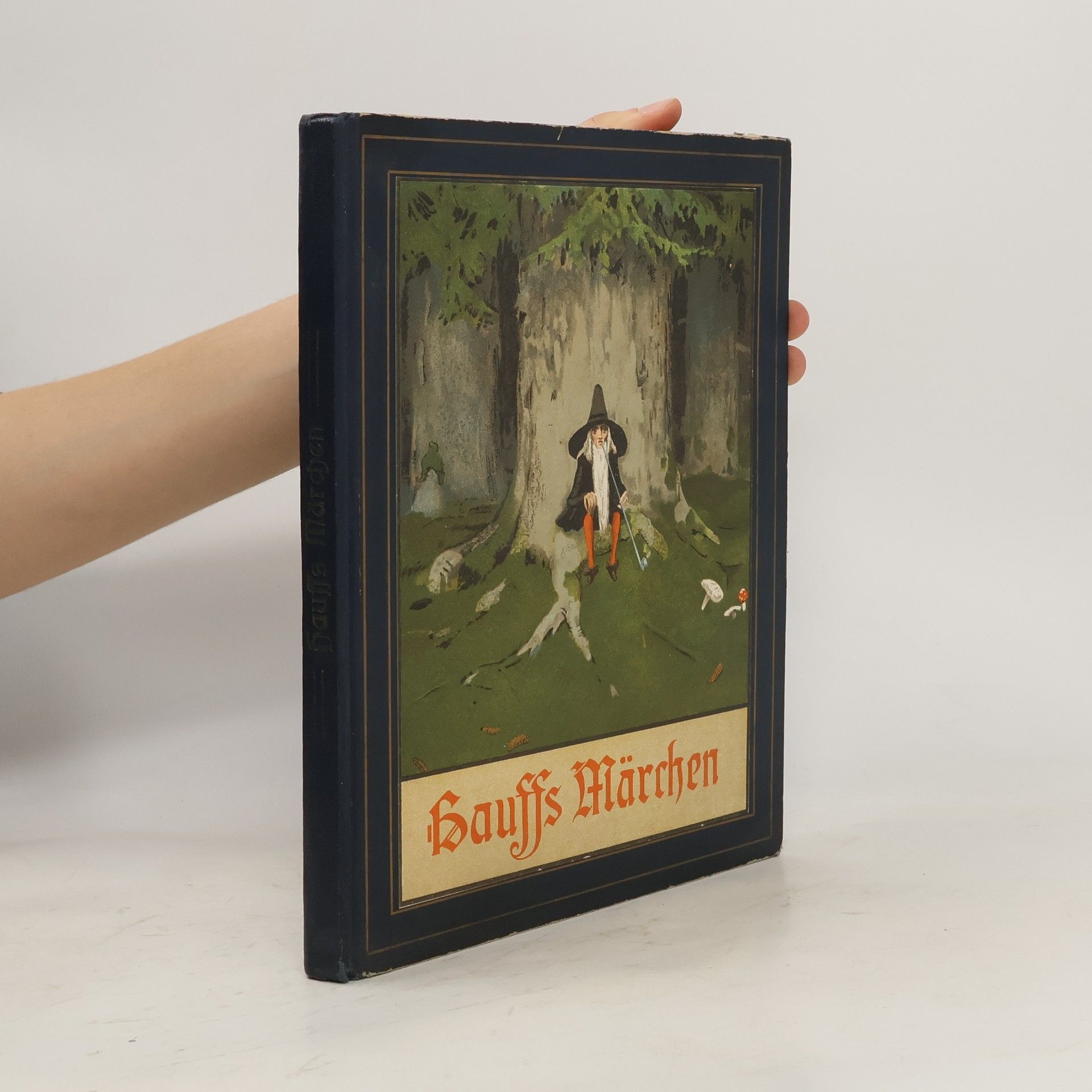The book is a facsimile reprint of a scarce antiquarian work, preserving its original content despite potential imperfections like marks and flawed pages. Emphasizing its cultural significance, this edition aims to protect and promote important literature by providing an affordable, high-quality reproduction that remains faithful to the original.
Wilhelm Hauff Libri
Wilhelm Hauff fu un poeta e romanziere tedesco celebrato per le sue fiabe. Possedeva un dono narrativo e inventivo, combinando temi esterni con la propria voce unica e un ingegno piacevole e spesso vivace. La sua opera dimostra una forte influenza di E.T.A. Hoffmann nei suoi elementi fantastici, mentre i suoi romanzi storici offrirono le prime imitazioni dello stile di Sir Walter Scott. Le fiabe di Hauff, pubblicate in un almanacco, raggiunsero una popolarità duratura, consolidando la sua reputazione di narratore dotato.







German Moonlight
- 22pagine
- 1 ora di lettura
Significant throughout human history, this book has been preserved and republished in a modern format to ensure its continued relevance for present and future generations. Its enduring importance highlights the value of its content, making it a vital resource for readers interested in its themes and insights.
THE BANISHED A SWABIAN HISTORICAL TALE Vol. 1
- 122pagine
- 5 ore di lettura
Set against the scenic Swabian Jura, the novella follows Count Wilhelm von S. after his banishment from his family estate due to a conflict with his father. Determined to forge his own path, he embarks on a journey filled with challenges and discoveries, aided by a mysterious old man who gifts him a magical pocket of wealth. The narrative blends romance, adventure, and societal critique, exploring themes of wealth, power, and social expectations with humor and satire, showcasing Hauff's storytelling prowess and depth in character development.
THE BANISHED A SWABIAN HISTORICAL TALE Vol. 3
- 110pagine
- 4 ore di lettura
Count Wilhelm von S. faces banishment from his family estate, setting him on a journey filled with romance, adventure, and societal critique in the picturesque Swabian Jura. As he seeks to forge his own destiny, he encounters a mysterious old man who gifts him a magical pocket that offers endless wealth. The novella blends humor, satire, and social commentary, exploring themes of wealth, power, and societal expectations. Hauff's storytelling enriches Wilhelm's character and presents an engaging narrative that reflects on the complexities of human experience in a historical context.
THE BANISHED A SWABIAN HISTORICAL TALE
- 332pagine
- 12 ore di lettura
Set against the picturesque Swabian Jura, this novella follows Count Wilhelm von S, who is banished from his estate after a conflict with his father. Seeking fortune and independence, he embarks on an adventurous journey, aided by a mysterious old man and a magical wallet that provides endless money. As Wilhelm navigates various challenges, the story weaves humor and satire with a critical examination of wealth, power, and societal norms. Hauff's narrative blends entertainment with moral lessons, showcasing his storytelling talent and poignant legacy.
THE BANISHED A SWABIAN HISTORICAL TALE Vol. 2
- 114pagine
- 4 ore di lettura
Set against the scenic Swabian Jura, this novella follows Count Wilhelm von S. after his banishment from his family estate. Determined to shape his own destiny, he embarks on a journey filled with challenges and self-discovery. A mysterious old man gifts him a magical pocket that provides endless wealth, leading to encounters that blend humor, satire, and social critique. Hauff skillfully explores themes of wealth, power, and societal expectations, offering a rich continuation of Wilhelm's adventures and a thoughtful reflection on human experience.
The Banished
A Swabian Historical Tale, Edited By James Morier, Esq. (Complete Edition Of Three Volumes, Vol. I. - III.)
- 290pagine
- 11 ore di lettura
Set in Swabia, this historical tale weaves a rich narrative that explores themes of exile, identity, and societal change. The story follows characters navigating the complexities of their lives amid historical events, showcasing the cultural and social dynamics of the region. Edited by James Morier, this complete three-volume edition offers a deep dive into the intricacies of the era, blending personal struggles with broader historical contexts, making it a compelling read for those interested in historical fiction and regional narratives.
Pohádky německého romantického spisovatele, v nichž se dobrodružný a fantastický prvek mísí s rozmarným, humorným. Obsahuje všechny tři almanachy: Karavana (Die Karawane, 1826) Šejk z Alexandrie a jeho otroci (Der Scheik von Alessandria und seine Sklaven, 1827) Hospoda ve Špesartu (Das Wirsthaus im Spessart, 1828) přeloženo z vydání Volksverlag Weimar, 1958 2. vydání, tohoto překladu první Pohádky: Karavana-Příběh o kalifu čápovi, Strašidelná loď, Příběh o uťaté ruce, Osvobození Fátimy, Malý Muk, Nepravý princ. Šejk z Alexandrie a jeho otroci-Trpaslík Nos, Abner, žid, který nic nevěděl, Člověk-opice, Osudy Almansorovy. Hospoda ve Špesartu-Pověst o jelení zlatce, Chladné srdce, Saidovy osudy, Steenfollská jeskyně, Chladné srdce II. Cena knihy v čase vydání: 40.- Kčs.
Favole ceche
- 116pagine
- 5 ore di lettura

